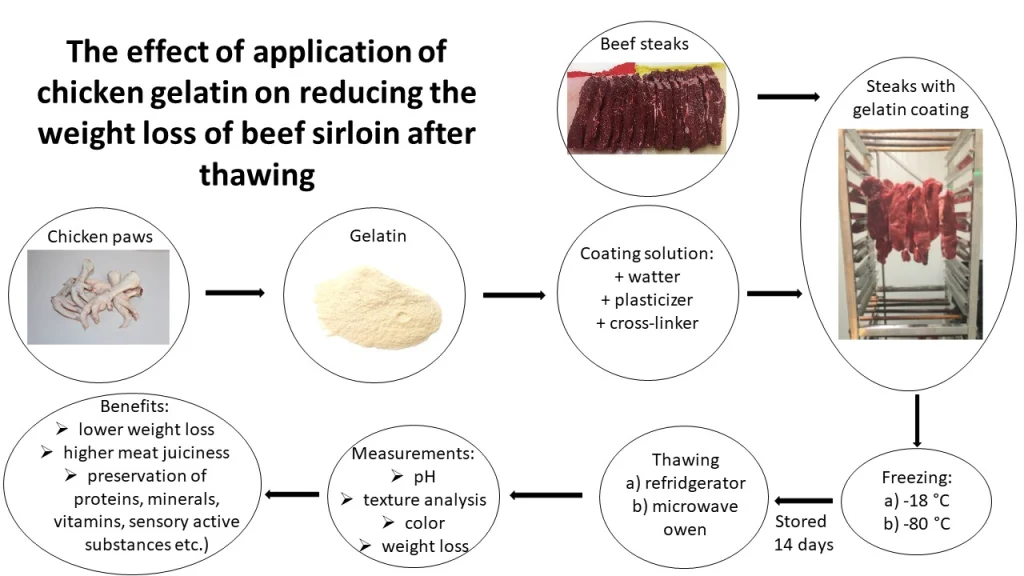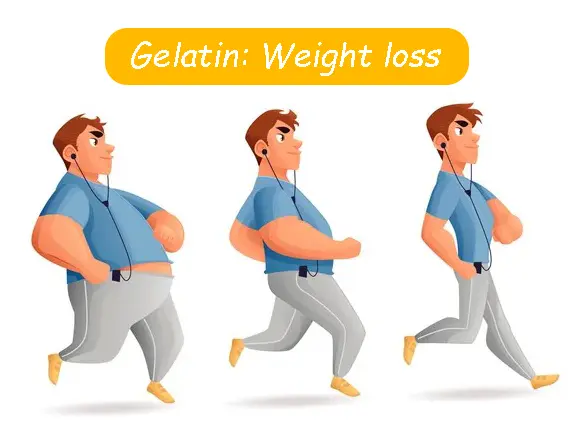Every day brings a new weight loss trend, but while many fads come and go, some time-tested methods remain reliable. One such method is incorporating gelatin into your diet—a natural, protein-rich supplement with science-backed benefits for your overall health and potentially for weight loss.

What Makes Gelatin Healthy?
Gelatin is a nearly flavorless, colorless substance derived from collagen, the protein found in the connective tissues, skin, and bones of animals. When collagen is broken down, it produces amino acids such as glycine, proline, and hydroxyproline. Dissolving gelatin in hot water creates a jelly-like consistency that can be used in various recipes. But beyond its culinary versatility, gelatin offers several health benefits:
- Tissue Support: High in protein, gelatin plays a crucial role in building and repairing body tissues. It’s the richest source of glycine, an amino acid essential for protein synthesis.
- Skin and Hair Health: As we age, our natural collagen levels drop, which can lead to less firm skin and thinning hair. Some studies suggest that gelatin may help improve skin hydration and reduce wrinkles, while its collagen content supports stronger nails and healthier hair.
- Bone Strength: Lysine in gelatin helps your body absorb calcium, which is vital for maintaining strong bones.
- Digestive Health: Gelatin aids digestion by producing glutamine, an amino acid that repairs and maintains the gut lining.
- Sleep Quality: Thanks to its high glycine content, gelatin may promote relaxation and improve sleep quality.
How Gelatin Can Support Weight Loss
Gelatin is almost entirely protein—about 98-99%—which makes it a satisfying and filling addition to your diet. Protein-rich foods are known to reduce hunger by signaling fullness to the brain. Studies have shown that gelatin can curb appetite by boosting the levels of fullness hormones like GLP-1, which means you may naturally eat less throughout the day.
Furthermore, because gelatin helps boost your metabolic rate and supports lean muscle maintenance, it can assist in converting calories into energy rather than storing them as fat. With just 83 calories per 100 grams and virtually no carbohydrates, gelatin provides a nutrient-dense, low-calorie option to help control portion sizes and manage overall calorie intake.
Creative Ways to Incorporate Gelatin
When thinking about gelatin for weight loss, it’s important to avoid overly sweet or processed forms like Jell-O, which are high in sugar. Instead, opt for plain, unflavored gelatin powder and try these ideas:
- Bone Broth: Enhance your homemade bone broth by stirring in a scoop of gelatin powder. This adds extra thickness and boosts the collagen content for a nourishing, savory meal.
- Smoothies: Mix a tablespoon of gelatin into your favorite fruit and vegetable smoothie. This not only enriches your drink with protein but also helps keep you full longer.
- Jelly Desserts: Create your own healthy jelly desserts by dissolving gelatin in hot water, blending it with fruit juice or puree, and refrigerating until set. These can be sweetened naturally for a low-calorie treat.
- Homemade Gummies: Combine gelatin with fruit juice and a natural sweetener like honey or maple syrup, pour into silicone molds, and chill until set for a fun, protein-packed snack.
- Oatmeal Boost: Stir a generous spoonful of gelatin into chilled oatmeal or an oatmeal smoothie. This transforms your breakfast into a light yet filling meal that sustains you through the morning.
Considerations Before Adding Gelatin to Your Diet
Before making gelatin a regular part of your routine, keep a few points in mind:
- Allergies and Dietary Restrictions: Gelatin is derived from animal products, so it isn’t suitable for vegetarians or vegans. If you have allergies to animal-derived ingredients, consider alternatives like agar agar.
- Purity and Quality: Choose high-quality, unflavored gelatin powder from reputable sources. Organic or grass-fed options are preferable as they are free of additives and hormones.
- Moderation is Key: While gelatin is beneficial, overconsumption can lead to digestive discomfort such as bloating or constipation. Stick to the recommended dose—generally up to 10 grams per day—and consult your healthcare provider if you have concerns.
Potential Side Effects and Timeline for Results
Gelatin’s high protein content can help keep you full, but some individuals might experience mild bloating or digestive issues if taken in excess. Allergic reactions, though rare, may also occur. If you’re pregnant or breastfeeding, it’s best to discuss gelatin supplementation with your doctor.
There isn’t a fixed timeline for seeing weight loss results from gelatin. Many people start noticing subtle changes in their appetite and energy levels within a few weeks of consistent daily use, especially when combined with a balanced diet and regular exercise.

Frequently Asked Questions
-
How much gelatin should I take per day?
Starting with up to 10 grams daily is generally recommended, with the possibility of adjusting after six months. -
Is Jell-O a good option for weight loss?
No; Jell-O products usually contain added sugars and minimal protein, making them counterproductive for weight loss. -
Can I use Knox gelatin for weight loss?
Yes, if you choose the unflavored variety, Knox gelatin can be an effective supplement. -
What happens if I overconsume gelatin?
Eating too much gelatin may lead to digestive issues such as bloating. Stick to recommended amounts to avoid side effects. -
Does gelatin contain sugar and calories?
Pure gelatin is very low in calories and contains no carbohydrates or sugar unless additional ingredients are added.
Final Thoughts
Gelatin can be a valuable component of a weight loss strategy, thanks to its protein content and appetite-suppressing properties. However, it’s not a miracle solution on its own. For best results, combine gelatin supplementation with a balanced diet rich in lean proteins, vitamins, and minerals, and maintain an active lifestyle. With the right approach, gelatin can help you feel fuller for longer, support your metabolism, and contribute to a healthier, more balanced diet.


Leave a Reply